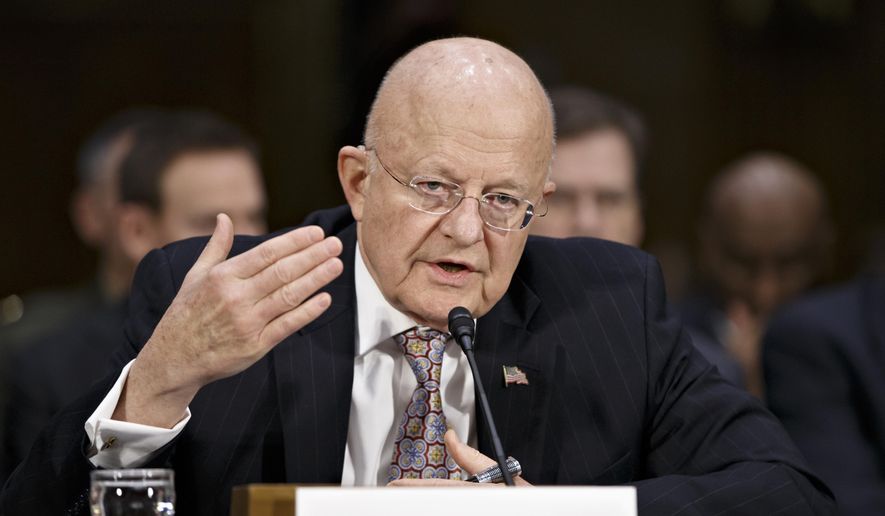Director of National Intelligence James R. Clapper does not believe China will comply with a new pact to stop state-sponsored cyberattacks on U.S. businesses and trade secrets coming from the communist country.
“Hope springs eternal,” Mr. Clapper told the Senate Armed Services Committee Tuesday. “I think we will have to watch what their behavior is, and it’ll be incumbent on the intelligence community, I think, to depict [and] portray to policymakers what behavioral changes, if any, result from this agreement.”
When asked by Sen. John McCain, committee chairman and Arizona Republican, if he was optimistic about the deal, Mr. Clapper offered the panel an empathetic “no.”
Mr. Clapper and U.S. military leaders were all skeptical of the pact President Obama and Chinese President Xi Jinping agreed to last week in Washington. It calls for neither country to conduct or knowingly support cybertheft of trade secrets or competitive business information. The White House said the agreement covers cybertheft where the intent is to provide a competitive advantage to a country’s companies or commercial sectors.
U.S. officials largely believe that China is responsible for a series of high-profile cyberincidents, including a breach that impacted the Office of Personnel Management and allowed hackers to compromise the private records of an estimated 21.5 million current and former federal employees or job applicants.
Other intrusions suffered by corporations and government agencies alike in recent months have been blamed on Beijing as well.
Adm. Mike Rogers, the head of the National Security Agency and U.S. Cyber Command, told the panel he considers China to be the biggest proponent of cyberattacks being waged against the U.S.
“I think all of us have some healthy skepticism about this, but I believe it’s a good confidence-building measure and a good first step, and we will see if it leads to better behavior on the part of the Chinese,” added Robert Work, the deputy secretary of the Department of Defense.
“The proof will be in the pudding,” Mr. Work said. “It’s going to be up to the Chinese to demonstrate that they are serious about this.”
Mr. Xi, during his first official visit to the U.S., reached the agreement with Mr. Obama amid reports the administration was considering imposing economic sanctions over the attacks.
The threat of economic sanctions was likely the driving factor in China’s agreement with the U.S., Mr. Clapper said. Absent specific penalties, however, he said he had his doubts that the Chinese leader will keep his word.
Mr. Clapper added that when discussing penalties, policymakers also must remember that the U.S. conducts cyberspying too.
“We too practice cyberespionage and, in a public forum, I’m not going to say how successful we are, but we’re not bad,” Mr. Clapper said. “I think it’s a good idea to at least think about the old saw about people in glass houses should not throw rocks.”
⦁ This story is based on wire service dispatches.
• Andrew Blake can be reached at ablake@washingtontimes.com.




Please read our comment policy before commenting.